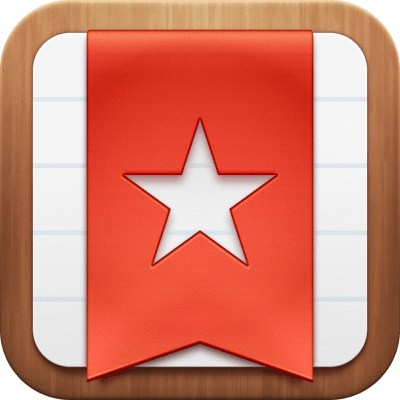As the world of productivity and calendaring apps continues to get more crowded, one of the bigger players from Europe stepping up its game: Wunderlist, the to-do app with 9 million downloads to date, is planning to launch a Pro version of its currently free service. Initially aimed at helping with collaboration and task management for small businesses, Wunderlist Pro will be the first paid product from Berlin-based 6Wunderkinder, which has found a loyal following on around its concept of making an easy-to-use, super simple app — or, in the words of founder and CEO Christian Reber, your “best buddy,” and not a piece of technology.
In an interview earlier today, Reber told us that the app is due to go live next week, at which point they will announce pricing priced at $4.99 per month or $44.99 for a year of use — in other words, the subscription model you currently see around services like Evernote Premium and Evernote Business — with the app be free to download. In December, when 6Wunderkinder released a multi-platform native version of its productivity app, we noted that it had 3 million active monthly users. That cross-platform strategy appears to be paying off so far: he says that more than 30% of its active monthly users currently access Wunderlist on more than one platform. When the app is released 6Wunderkinder will be giving out more details on current user numbers, Reber says.
The idea will be to offer services on the Pro app that are not available on the free version, and for that free version to continue to remain consumer focused, while the Pro version becoming increasingly an enterprise product.
Initially, that will mean a way of sharing and assigning tasks to other people in a specified user group, with new features trickling in over time: “We didn’t want to create overloaded project management software,” he writes in a blog post on 6Wunderkinder’s site announcing the news.
The approach is decidedly counter to much that we see in enterprise software today. “One thing we’ve learned in the last 2,5 years with building Wunderkit and Wunderlist is, we can only be great at something if we really try to focus on become outstanding at solving one single problem – and for us, that’s how people work and share tasks with each other. In addition, we know that users think the same. They want one product, to solve a specific problem they have.”
He says that there will be updates released with new features every 4-8 weeks — making good use of their new CTO, Chad Fowler, who they hired away from Living Social earlier this year. One of these will be increased security features demanded by businesses.
With apps like Sunrise, Donna and more now entering the calendaring and to-do space, picking up enterprise users is one way for Wunderlist to continue to differentiate itself, as he admits that calendaring, productivity, to-do, and work collaboration apps are “definitely colliding.”
But for now, he maintains that there are still distinct differences between apps that offer calendar-based reminders and those that are “to-do” lists, and those that are places to collect thoughts. In fact, in addition to openly wanting to emulate Evernote in its targeting of the business user, Reber tells us he loves Sunrise.
“It is an amazing app,” he says. “It’s connected to Google Calendar and sends me all my Google meetings in one go. Wunderlist is about things you need to get done.” In contrast, he believes that apps like Asana are more of a “definite” competitor to Wunderlist today. Even so, “Asana is focused on larger businesses and we are mainly in the consumer market today, focused on the best and simplest experience you can get.”
Wunderlist currently is available on iOS, Android and the the web, and Reber says that Windows Phone and BlackBerry versions are coming “soon.”
Here’s a video previewing how the new Wunderlist Pro app will look:
